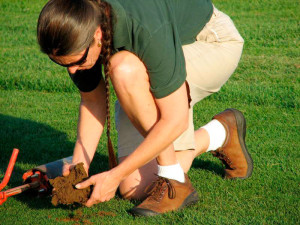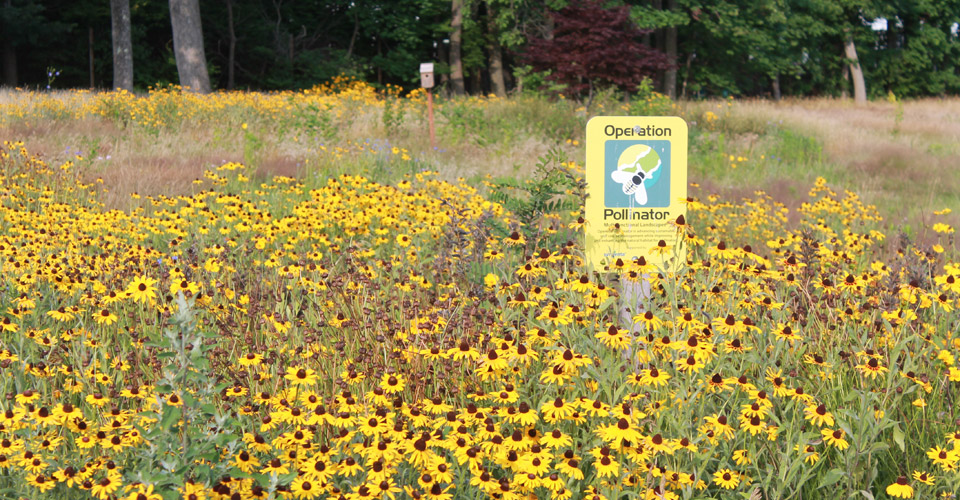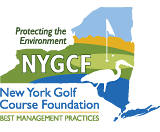While the NYS BMP Committee is hard at work formulating BMPs for pollinator protection on the state’s golf courses, an increasing amount of information is available to help golf course superintendents protect pollinators by minor modifications to management regimes and to enhance habitat to help sustain pollinator populations. Selected publications and websites are briefly described below:
Websites:
- New York State Integrated Pest Management, Cornell University IPM program web page with resources specific to pollinators and related links to additional information.
- Pollinator Network @ Cornell. Listing of pollinator-related publications and information.
- New York State Pollinator Protection Plan NYS DEC publication that includes an overview of the issues related to pollinator species (both managed bees and wild species), guidance for state agencies, and BMPs relevant to superintendents (Appendices C: Landowner/Grower BMPs and D: Pesticide User BMPs).
- Ecoregional pollinator-friendly planting guides Pollinator Partnership web site that provides regional plant guides of native plants, including trees, shrubs, annual and perennials specifically used by pollinators. Also includes a description of the types of nesting sites/materials by pollinator types.
- NYS BMP YouTube Channel. The home of the NYS BMP program videos. Currently featuring a 4-part case study of enhancing pollinator habitat on a golf course on Long Island.
- List of beekeeper organizations in New York State
Publications:
- Best Management Practices for Turf Care and Pollinator Conservation: Fast Facts, published by the North Central IPM Center, this two page publication summarizes the longer version of the Best Management Practices for Turf Care and Pollinator Conservation publication by the same authors.
- Making Room for Native Pollinators This USGA publication provides the basics of pollinator biology useful for pesticide applicators; detailed information on creating foraging habitat and bee nesting habitat and man-made nest sites specifically on golf courses.
- Specialist bees of the Mid-Atlantic and Northeastern United States, Published by the Xerces Society for Invertebrate Conservation and United States Geological Society, this publication lists host plants preferred by northeast bee species.
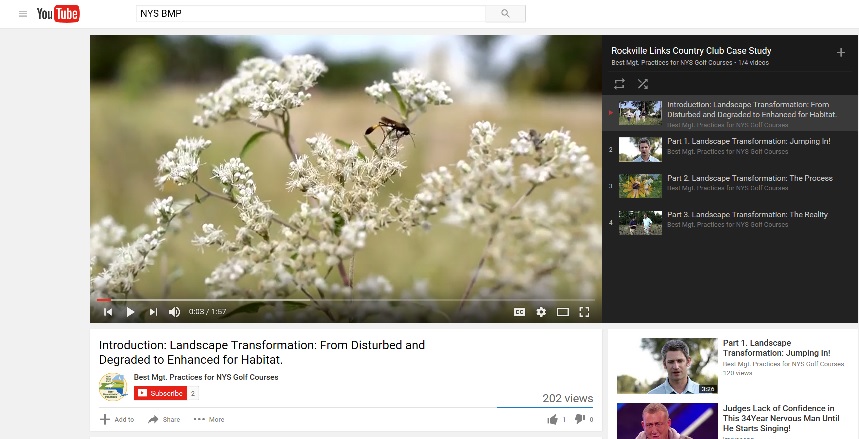
 ff depends on a number of variables, including the intensity of precipitation or irrigation, soil infiltration capacity, site characteristics, antecedent soil moisture, and season. The following are some of the seasonal changes in runoff versus infiltration potential:
ff depends on a number of variables, including the intensity of precipitation or irrigation, soil infiltration capacity, site characteristics, antecedent soil moisture, and season. The following are some of the seasonal changes in runoff versus infiltration potential: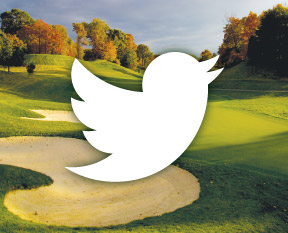 We are now on Twitter!
We are now on Twitter!